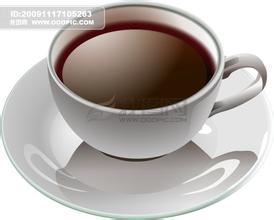Introduction of boutique coffee beans in producing areas of coffee flavor and taste in Valenford Manor, Jamaica
Since the late 16th century, Jamaica has been repeatedly attacked by pirates from France, England, the Netherlands and other countries. In May 1655, a British fleet led by William Bing and Robert Venables occupied Jamaica. They immediately invited pirates to the island's port of Loire to help defend the Spaniards from possible counterattacks. Between 1657 and 1658, the Spaniards fought back from Cuba and ended in failure.
In 1670, according to the Madrid Treaty, Spain formally ceded Jamaica and other places to Britain, and the British immediately used the island of Jamaica as a base for their acts of piracy. Before the earthquake destroyed the port of Loire in 1692, it once became the "capital" of Caribbean pirates. Since then, the British built Kingston and gradually built it into the central city of Jamaica.
Bamboo Forest Street, Jamaica
Bamboo Forest Street, Jamaica
In the 150 years after 1692, Jamaica became a world-famous producer of sugar, rum and coffee. [4] in order to maintain a large number of plantations, the Royal Africa Company was established in England in 1672.
After 1865, after another large-scale uprising, Britain declared Jamaica a colony under direct jurisdiction in 1866. At the end of the 19th century, the sugar industry in Jamaica gradually declined and was replaced by banana farming. In 1872, Kingston officially became the capital of Jamaica
Blue Mountain Coffee can maintain today's top status, but also closely related to the local business policy. In 1932, Jamaica adopted a policy to encourage coffee production to reduce the island's dependence on sugar exports. Unlike most coffee-producing countries, the local government does not plant a large number of high-quality and poor-quality coffee in order to increase output, but to give priority to quality, preferring to sacrifice the output of coffee to ensure the quality of Blue Mountain coffee. Therefore, Jamaica is currently one of the countries with low coffee production in the world. Brazil, the world's largest coffee exporter, produces 30 million bags of coffee a year, while Blue Mountain produces only about 40, 000 bags a year.
In addition, the processing and production of Blue Mountain Coffee is also very elegant. Strict and detailed standards have been established for processing, baking and packaging, and there are regulations on what kind of organic fertilizers are needed during the growth period. All are harvested manually at harvest time. Jamaica is also the last country to still transport coffee in traditional wooden barrels.
Only through this series of stringent standards set by the Jamaican Coffee Industry Authority can coffee obtain a guarantee issued by the government and officially bear the name "Blue Mountain".
Americans don't drink Blue Mountain coffee.
The United States is a coffee-loving country, but the reporter did not find any "coffee beauty" in several major supermarket chains and Starbucks coffee shops in Houston. According to a waiter at a Starbucks coffee shop in downtown Houston, their coffee is mainly made from beans from Africa, Colombia or Indonesia. Blue Mountain Coffee is less on the market, and 90% of Blue Mountain Coffee is owned by the Japanese. At present, the "Blue Mountain style" coffee seen on the market does not contain a positive blue mountain coffee bean. One kind of "Jamaican mixed Blue Mountain" coffee is a mixture of 30% Blue Mountain Coffee and 70% of the best Jamaican Alpine Coffee. The above two kinds of coffee try to imitate the taste of Blue Mountain Coffee, but can not achieve the perfect state.
The reporter interviewed several customers near the coffee shop, some of whom had not even heard of Blue Mountain Coffee. Blue Mountain Coffee has been given a "cold reception" in the United States, which has something to do with American coffee drinking habits. Since the 1970s in the United States, seasoned coffee has gradually become everyone's favorite coffee. It is made by adding seasoning spices to the coffee beans or adding a seasoned coffee companion to the brewed coffee. There are hundreds of flavored coffees, and the most popular flavors in the United States are vanilla, hazelnut and almond.

Important Notice :
前街咖啡 FrontStreet Coffee has moved to new addredd:
FrontStreet Coffee Address: 315,Donghua East Road,GuangZhou
Tel:020 38364473
- Prev

Introduction to the Flavor and Taste characteristics of Coffee varieties in Cliff Manor, Jamaica
In 1670, according to the Madrid Treaty, Spain formally ceded Jamaica and other places to Britain. The British immediately used the island of Jamaica as a base for their acts of piracy. Before the earthquake destroyed the port of Loire in 1692, it was once the capital of pirates in the Caribbean. Since then, the British built Kingston and gradually built it into the central city of Jamaica after 1872.
- Next

Aromatic and delicious Nicaragua Joy Manor Coffee Flavor Taste Boutique Coffee Bean Production Features
Columbus sailed here in 1502 and reached the east coast of Nicaragua. In 1522, Spanish colonists began conquering the area. In 1524 the cities of Granada and Leon were founded. From then on, Nicaragua became a Spanish colony and was placed under the jurisdiction of the Governor General of Guatemala. León became a political and cultural centre; Granada became a commercial and agricultural centre. In the late colonial period,
Related
- Does Rose Summer choose Blue, Green or Red? Detailed explanation of Rose Summer Coffee plots and Classification in Panamanian Jade Manor
- What is the difference between the origin, producing area, processing plant, cooperative and manor of coffee beans?
- How fine does the espresso powder fit? how to grind the espresso?
- Sca coffee roasting degree color card coffee roasting degree 8 roasting color values what do you mean?
- The practice of lattes: how to make lattes at home
- Introduction to Indonesian Fine Coffee beans-- Java Coffee producing area of Indonesian Arabica Coffee
- How much will the flavor of light and medium roasted rose summer be expressed? What baking level is rose summer suitable for?
- Introduction to the characteristics of washing, sun-drying or wet-planing coffee commonly used in Mantenin, Indonesia
- Price characteristics of Arabica Coffee Bean Starbucks introduction to Manning Coffee Bean Taste producing area Variety Manor
- What is the authentic Yega flavor? What are the flavor characteristics of the really excellent Yejasuffi coffee beans?

